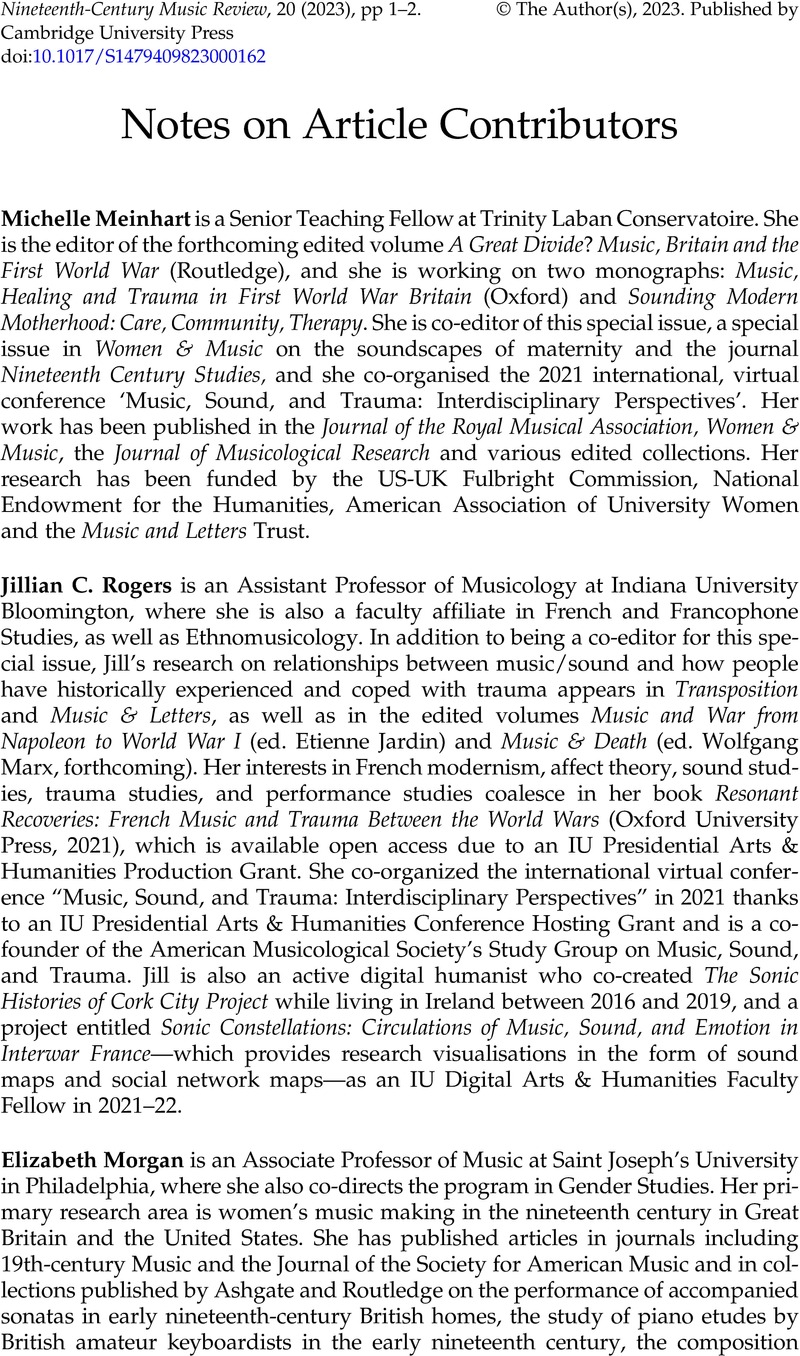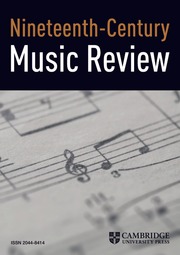No CrossRef data available.
Article contents
Notes on Article Contributors
Published online by Cambridge University Press: 03 May 2023
Abstract
An abstract is not available for this content so a preview has been provided. Please use the Get access link above for information on how to access this content.

- Type
- Notes on Article Contributors
- Information
- Nineteenth-Century Music Review , Volume 20 , Special Issue 1: Music, War and Trauma in the Long Nineteenth Century , April 2023 , pp. 1 - 2
- Copyright
- Copyright © The Author(s), 2023. Published by Cambridge University Press



